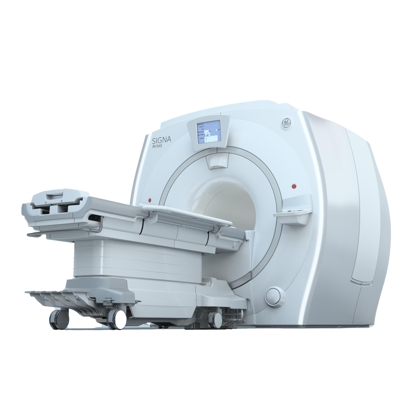
Chemical Stress Test
A chemical stress test (also called a pharmacologic stress test) is used when the physician has determined that exercise on a treadmill is not an appropriate choice due to the patient's medical condition. Chemical stress tests are a common practice. In this situation, medications are given that either cause the coronary arteries to dilate or cause the heart rate to increase. The chemical response is similar to the response caused by exercise.
Through your IV, a chemical called Lexiscan will be injected. You may feel similar to what you would feel if you were exercising. You may feel a shortness of breath, headache, flushing, chest discomfort or chest pain, or dizziness. In some instances, there may not be any symptoms to the stress agent. If you feel any symptoms, please let the technologist or nurse know.
You will have a team of medical professionals who will closely monitor you throughout the entire procedure. Once your test is complete, you will continue to be monitored. You will again be given water to drink, as well as coffee, soda and crackers. Caffeine is the antidote; any symptoms that you may feel will subside with caffeine intake. You may be told at this time that you may leave to eat lunch. At this time, your IV will be taken out, and you will have an hour to return. Upon return, you will be asked to lie underneath the gamma camera once more. Once your stress images are completed, you are free to leave.
Is it safe?
Stress testing is very safe. It is important to keep in mind that you will be continuously and extensively monitored throughout the test by experienced personnel and that the test will be stopped if there is any indication that continuing exercise would be unsafe in any way. There are no reports of allergic reactions or side effects related to injection of the radioactive solutions. The radiation exposure from the test is very small (equivalent to that of a chest x-ray) and not associated with any significant health risk.
Your Results
The test results will not be available immediately after the test. Your test will be reviewed and interpreted by a cardiologist, and a report will be provided to your physician, who will contact you.
-
Michel D.. Dumas, MD
RadiologyView Profile
-
Brent P.. Mahoney, MD
Radiation OncologyView Profile
-
Ashish C.. Patel, MD
RadiologyView Profile
-
Mark K.. Ono, MD
Radiation OncologyView Profile
-
Grady D.. Yoder, MD
Interventional RadiologyView Profile
-
Martin F.. Belli, MD
PathologyView Profile
-
Jon T.. Anderson, MD
RadiologyView Profile
-
James I.. Duff, MD
PathologyView Profile
-
Richard L.. Wu, MD-PHD
PathologyView Profile
-
Priscilla R.. Lyon, DO
PathologyView Profile




















